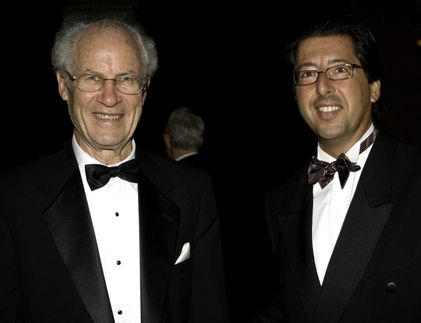Removing nickel from drinking water
Renaissance for "long-serving" ion exchange resin
Leverkusen - An ion exchange resin from Bayer AG that has been doing faithful service for more than 30 years in removing heavy metal residues from water is set to experience an outstanding renaissance: in a study financed by the German Federal Ministry of education and Research (BMBF), the chelating ion exchange resin Lewatit® TP 207 was found to be the only product that can remove nickel from drinking water.
According to a report from the Federal Environment Agency, nickel is a critical substance in environmental medicine because of its sensitizing and carcinogenic effect. For this reason, the amended German and European legislation on drinking water now prescribes a threshold of 20 micrograms per liter for the nickel concentration of drinking water instead of the previous 50 micrograms. However, because of mounting influences on the environment, acid rain and floods, this value is significantly exceeded in many places. To help remedy the situation, a research project sponsored by the BMBF was carried out jointly by Bayer Chemicals (a division of Bayer AG) and the Rheinisch-Westfälisches Institut für Wasserforschung GmbH (IWW). During this cooperation, a process was developed for eliminating heavy metals from raw water to produce drinking water.
In the study project, the basic parameters were defined for the design of a unit for producing drinking water from raw water. The stringent specifications with regard to the quality of the drinking water had to be taken into account, as did the legal regulations concerning the production of drinking water by ion exchange, the processing costs and the need to treat the wastewater and solid waste. Examined under conditions likely to be encountered in practice, only Lewatit® TP 207 of all the tested products was able to satisfy all the requirements of the tests. The resin was originally developed in 1972 for isolating heavy metals. It is a weakly acid macroporous ion exchange resin with chelating diacetate groups for the selective removal of heavy metal cations from weakly acidic to weakly basic solutions. The divalent cations are bound through the formation of a heterocyclic metal chelate complex with extremely high affinity and selectivity. In fact, this occurs even when there is a more than 40,000-fold excess of calcium ions.
Whereas conventional ion exchange resins adsorb primarily calcium and magnesium ions - which harms the production of drinking water - Lewatit® TP 207 restricts itself to removing the nickel. Because it already has approval for food contact applications, the "long-serving" Bayer ion exchange resin can now expect to be called upon to carry out fresh tasks on an industrial scale in this new field of application.
The ion exchange resins in the Lewatit® range have been used for more than 30 years for the treatment of wastewater and process water, for hydrometallurgical separation processes and for the recovery of valuable materials. The website "www.lewatit.com" provides a detailed overview of the full range of ion exchange resins.
Topics
Organizations
Related link
Other news from the department science

Get the chemical industry in your inbox
By submitting this form you agree that LUMITOS AG will send you the newsletter(s) selected above by email. Your data will not be passed on to third parties. Your data will be stored and processed in accordance with our data protection regulations. LUMITOS may contact you by email for the purpose of advertising or market and opinion surveys. You can revoke your consent at any time without giving reasons to LUMITOS AG, Ernst-Augustin-Str. 2, 12489 Berlin, Germany or by e-mail at revoke@lumitos.com with effect for the future. In addition, each email contains a link to unsubscribe from the corresponding newsletter.

























































